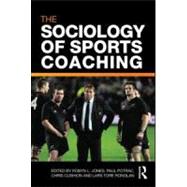
Note: Supplemental materials are not guaranteed with Rental or Used book purchases.
Purchase Benefits
What is included with this book?
| Editors and contributors | p. vii |
| Background and context | p. 1 |
| Introduction | p. 3 |
| Sociological thinkers | p. 13 |
| Erving Goffman: Interaction and impression management: playing the coaching role | p. 15 |
| Michel Foucault: Power and discourse: the 'loaded' language of coaching | p. 27 |
| Pierre Bourdieu: A theory of (coaching) practice | p. 40 |
| Arlie Russell Hochschild: The managed heart, feeling rules, and emotional labour: coaching as an emotional endeavour | p. 54 |
| Anthony Giddens: Acknowledging structure and individuality within coaching | p. 67 |
| Niklas Luhmann: Coaching as communication | p. 79 |
| Etienne Wenger: Coaching and communities of practice | p. 94 |
| Peter Blau: Exchange, reciprocity and dependency: how coaches and athletes rely on each other | p. 108 |
| Jürgen Habermas: Communicative action, the system and the lifeworld: critiquing social interaction in coaching | p. 122 |
| Coaching and the social | p. 133 |
| Power in coaching | p. 135 |
| Social interaction in coaching | p. 151 |
| Coach and athlete learning: a social approach | p. 166 |
| Concluding thoughts and ways forward | |
| References | p. 187 |
| Index | p. 207 |
| Table of Contents provided by Ingram. All Rights Reserved. |
The New copy of this book will include any supplemental materials advertised. Please check the title of the book to determine if it should include any access cards, study guides, lab manuals, CDs, etc.
The Used, Rental and eBook copies of this book are not guaranteed to include any supplemental materials. Typically, only the book itself is included. This is true even if the title states it includes any access cards, study guides, lab manuals, CDs, etc.